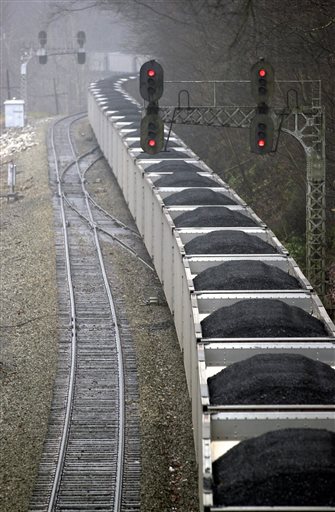Who really runs West Virginia? (Part 2)
March 1, 2016 by Ken Ward Jr.
As this year’s session of the West Virginia Legislature grinds on, it continues to become clear who is really running our state — and honestly, it’s not just about political parties (though surely, the parties increasingly have a chance to show us what they really stand for in these final weeks).
Two things that are moving forward up at the statehouse as I write give us the true picture of our state’s politics.
First, there’s the bill that emerged just yesterday — originated in committee as deadlines loom — to slash West Virginia’s coal severance tax. This is a bill that’s been promoted by the West Virginia Coal Association and appears based at least partly on the positions advocated by Murray Energy, though Murray CEO Bob Murray has publicly called for an even bigger increase than the reduction from 5 percent to 3 percent included in this legislation:
Political platitudes and lip service regarding the importance of coal jobs in the State and support for them will not save these family livelihoods this time. Only immediate action to reduce the State’s tax on coal extraction will help protect them … the West Virginia coal severance tax must be reduced from five percent (5%) of the gross sales price of its coal to no more than two percent (2%) very quickly.
It appears — at least from what’s available online from the Legislature — that the bill currently at issue (and ready for second reading today in the Senate) would phase in a reduction from 5 percent to 4 percent starting in mid-2018 and then to 3 percent in mid-2019.
This morning, Murray Energy spokesman Gary Broadbent had this statement about the current bill:
The legislation introduced yesterday is very much needed. Indeed, all of the proceeds from the coal severance tax reduction will go directly to our electric utility customers, through the language of our coal sales contracts, and none of it to any coal company. This will allow the jobs of West Virginia coal miners to be more competitive against coal from other states and against the increased use of natural gas to generate electricity.
The folks over at the West Virginia Center for Budget and Policy took a hard look at the Coal Association’s report on cutting the severance tax, and concluded, among other things:
There’s little evidence to support a severance tax cut for coal as a tool to increase production and employment. Overall, the state has little ability to influence the forces affecting the coal industry, be they competition from natural gas, environmental regulations, productivity, or transportation issues. The numbers in the Coal Association’s report are entirely unrealistic, which is probably why, despite their report, they don’t deny that a severance tax cut probably won’t help.
And you know there’s something to it when even Sen. Art Kirkendoll, D-Logan, isn’t on board with something the coal industry wants:
Sen. Art Kirkendoll (D-Logan), a coal supporter, argued against the bill, expressing concern of how cutting severance taxes would further hurt coalfield communities who rely on the distributed revenue. Sen. Mike Woelfel also expressed concern for coal counties.
“Now we’re going to turn our backs on those folks that don’t even have as much as a red light in their counties. Now we’re going to cut back their severance tax shares,” Woelfel said.
Second, there’s a little-noticed bill on third reading today in the House that will undoubtedly be portrayed as one of these “agreed to” pieces of legislation that everyone supports. But HB4276 would, among other things, potentially reduce the number of mine rescue teams available in the state, cut the fines coal operators would pay if they don’t quickly report serious mining incidents, and greatly expand the ability of mining companies to challenge violations and enforcement orders in court.
Still, here’s all the United Mine Workers would say about that bill:
After extensive negotiations, the union is supportive of this legislation. It is reflective of the negotiations process-neither party got all of what it wanted but compromised where needed.
What’s going on here is that coal industry supporters in the Legislature were threatening to push another bill, SB417, that the UMWA felt would make even more radical changes in state mine safety rules — for example, removing job security protections for safety inspectors — and the union and others thought that HB4276 was the best compromise they could get.
Of course, maybe lawmakers faced with a huge budget crisis will think twice about giving the coal industry a tax break.
UPDATED: Stranger things have happened … I mean, 16 Democrats did stick together to try to hurry the tax bill along, and as David Gutman reported, the Senate did refuse to pass a bill to help pipeline companies be able to go on people’s property without permission.
So maybe some in the Legislature will realize that just because the UMWA and the coal association agree to a bill doesn’t mean it’s good policy. They’re the ones who got elected, after all. And elections matter.

 Subscribe to the Coal Tattoo
Subscribe to the Coal Tattoo
